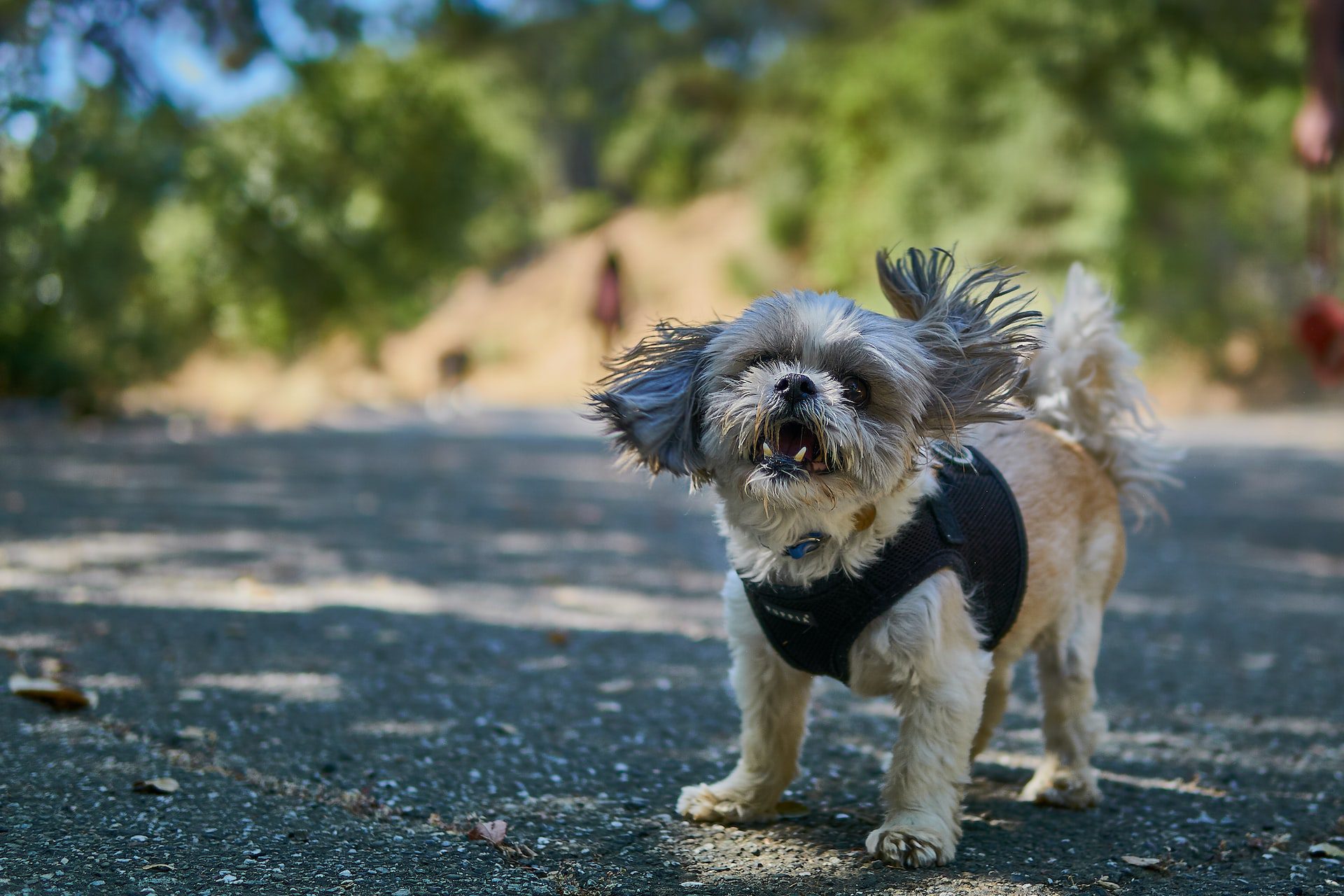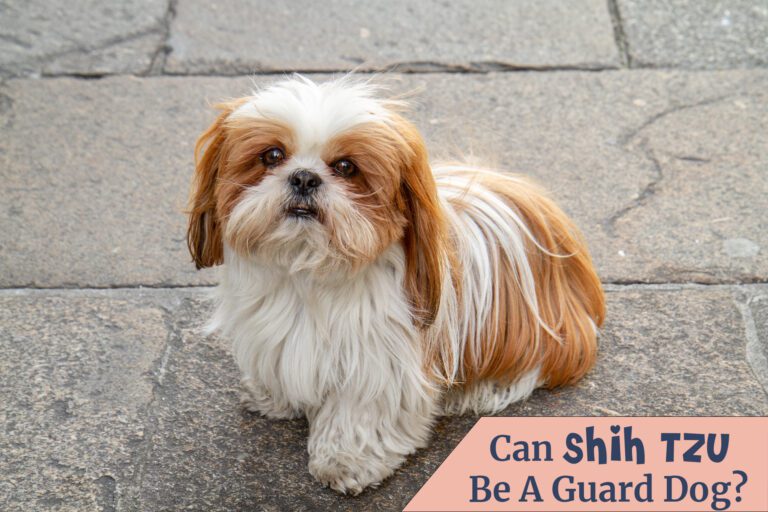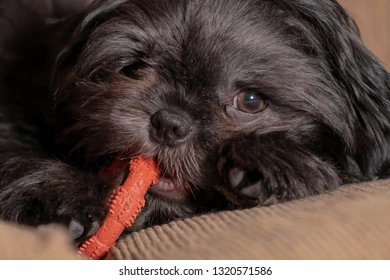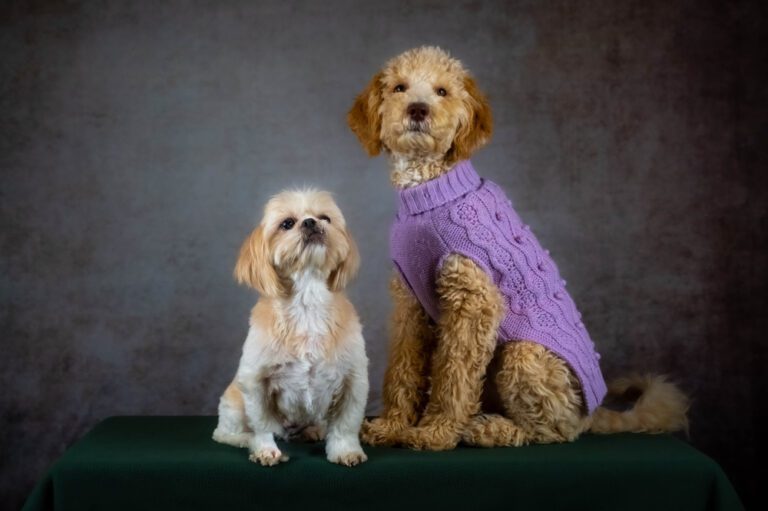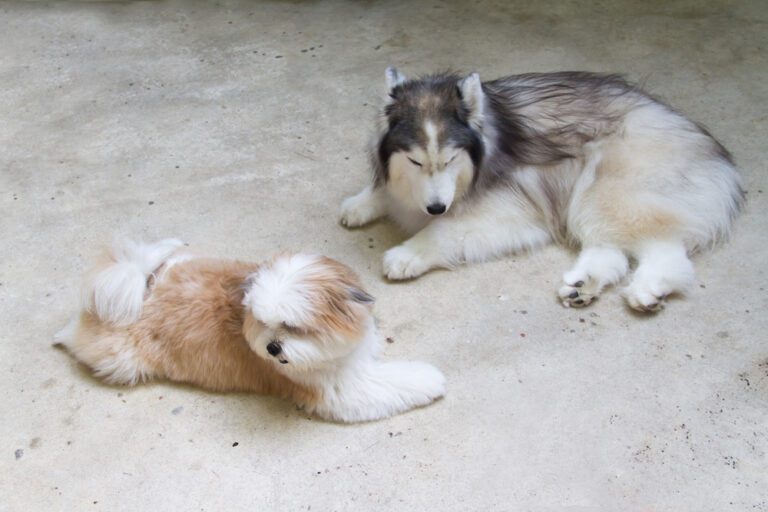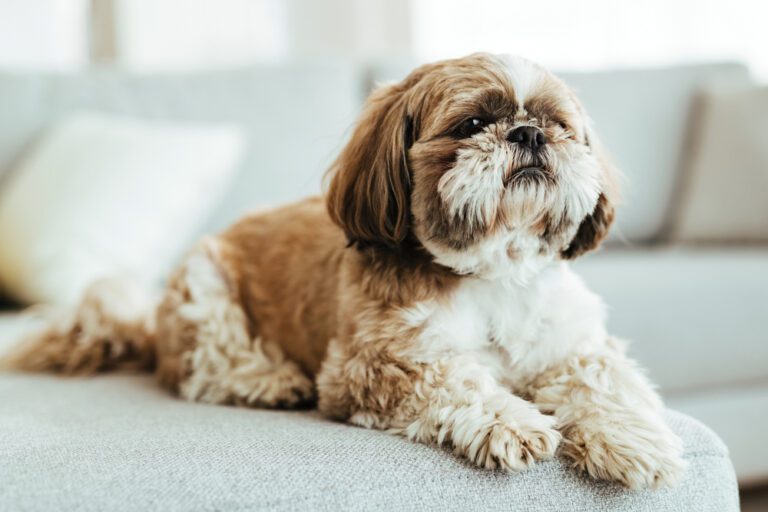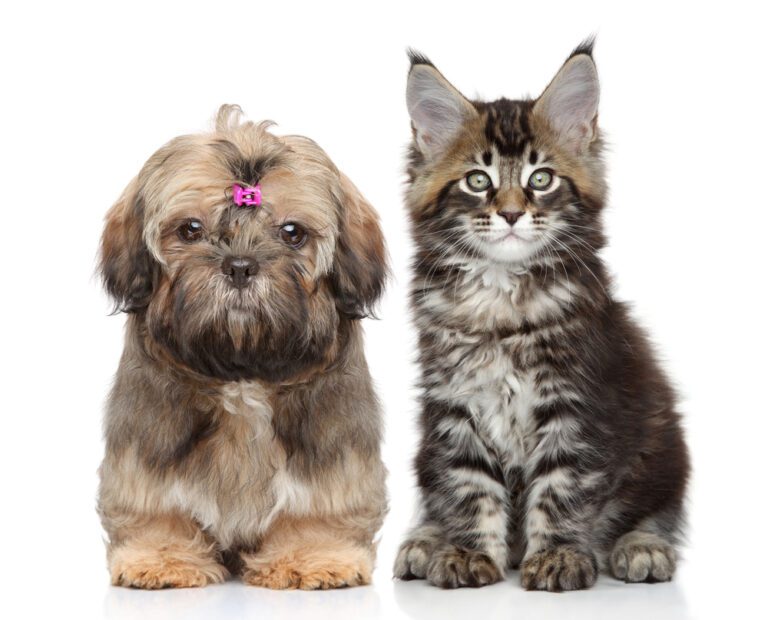Why Is My Shih Tzu Aggressive: Signs, Causes & Best Tips To Avoid
As a new owner, you may wonder why is my Shih Tzu aggressive.
Before owning a Shih Tzu, you likely researched and learned that this breed is generally known for being one of the loveliest and calmest of dogs.
Shih Tzus are generally known for their sweet and gentle dispositions, but it is not uncommon for these dogs to display aggressive behavior at some point in their lives. Aggression can take many forms, from growling and snapping to biting and lunging.
While it is natural for dogs to exhibit some level of aggression as a means of self-defense or to protect their territory or loved ones, excessive or uncontrolled aggression can be a severe problem and can put both the dog and those around them at risk.
It is essential to understand the signs of aggression in your Shih Tzu and to take steps to address and prevent this behavior.
This article will discuss the various signs of aggression in Shih Tzus, the potential causes of this behavior, and the best tips for avoiding and managing aggression in these beloved pets.
Understanding Why Your Shih Tzu Is Being Aggressive
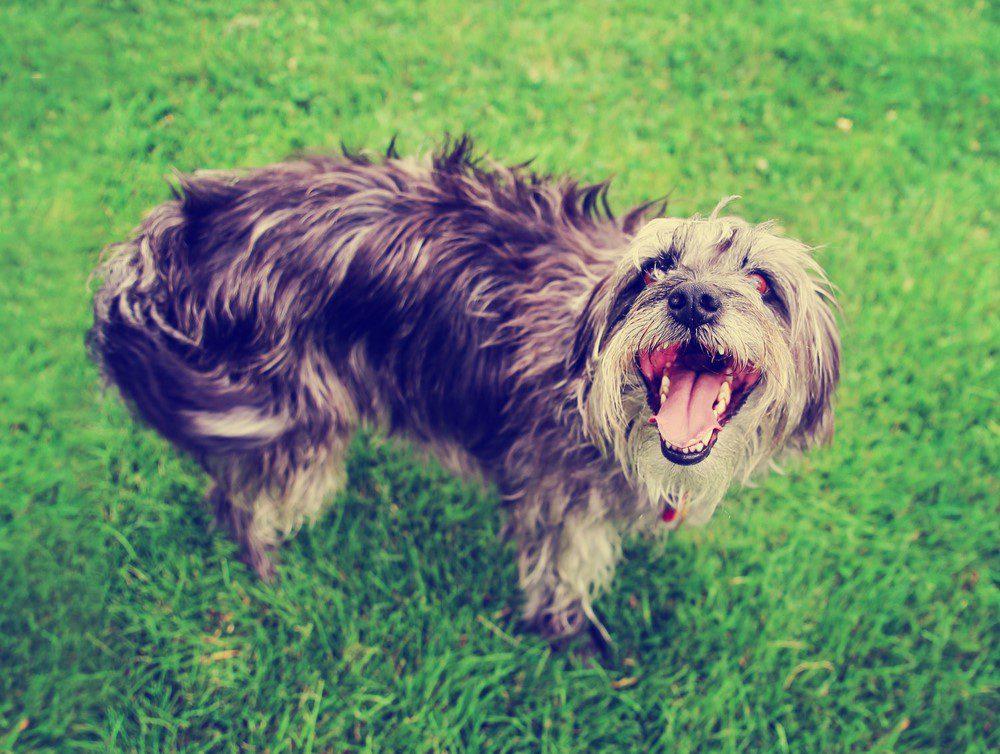
If you have a Shih Tzu, then you know that they are typically known for being sweet and obedient. However, at times your pup may display aggressive behavior. While it can be alarming to see aggression in your normally docile pup, it’s important to remember that there are a few reasons why this could be happening. Let’s examine why your Shih Tzu may be showing signs of aggression.
1. Genetics vs Environment
The first step to understanding why your Shih Tzu is acting aggressively is to determine whether the cause is genetics or environment-related. Genetics refers to the traits passed down from the dog’s parents, while environment refers to the current stressors within their life—such as changes in environment or daily routine. Knowing which factor is causing the aggression can help you better address the issue.
2. Fearful Aggression
One common reason for aggression in Shih Tzus is fear-based aggression. This type of aggression occurs when a dog feels threatened or scared by something or someone unfamiliar to them—it’s their way of protecting themselves from what they perceive as danger. If your pup becomes aggressive when meeting new people or animals, this could indicate fearful aggression. It would be best not to reprimand them for this behavior; instead, work with an animal behaviorist to help them cope with their fear and become more comfortable around others.
3. Dominance Aggression
Another common form of aggression in Shih Tzus is dominance aggression—when your pup tries to assert itself as an “alpha dog” over another person or animal. Dominance-based aggression usually stems from insecurity and can lead to resource guarding (i.e., protecting food, toys, etc.). To reduce this type of aggressive behavior, it’s essential that you set boundaries and rules with your pup and establish yourself as the leader of the pack. That way, they will feel secure knowing you are in charge and do not need to compete with other people or animals for dominance.
Identifying Aggression in Shih Tzus
The Shih Tzu is a small, lovable pup with a big personality. However, some of their personalities can lead to aggressive behavior if not properly managed. Owners need to know the signs of aggression in their pets.
Signs of aggression in Shih Tzus include:
-
Growling and Snarling: Imagine your Shih Tzu making a low, rumbling sound or showing its teeth. This is their way of saying they’re not happy or feeling safe.
-
Baring Teeth: Just like a smile can mean happiness in humans, when a dog shows its teeth, it’s often a sign they’re feeling defensive.
-
Ears Pulled Back: If your Shih Tzu’s ears are pinned back against their head, it’s a clear signal you’re feeling scared or aggressive.
-
Stiff Body Posture: A Shih Tzu standing very still with a tense body prepares for what they think is a threat.
-
Raised Hackles: The hair along their back stands up. This is your dog’s way of trying to look bigger and more intimidating.
-
High or Stiff Tail Wagging: Unlike the happy, relaxed wagging, they’re on high alert.
-
Lunging or Snapping: Moving quickly towards something or someone with a snap, even without contact, is a warning sign.
-
Hair standing on end (piloerection): Piloerection in Shih Tzus often manifests as a fluffed-up appearance, typically triggered by emotions such as fear or excitement.
-
Dilated pupils: Dilated pupils in Shih Tzus can indicate excitement, fear, or exposure to low light, often reflecting their emotional or environmental state.
These behaviors are often expressed when a Shih Tzu feels threatened or scared. Some triggers for aggressive behavior include fear, territoriality, possessiveness over food or toys, and lack of socialization. It’s important to recognize these signs early on so that issues can be addressed and prevented from getting worse.
How to Keep Your Shih Tzu from Becoming Aggressive?
If you own a Shih Tzu, you know that they can be sweet and loving animals. But if not properly trained and socialized, they can become aggressive. Undesirable behaviors can range from barking at strangers to growling and biting. Fortunately, there are measures you can take to keep your Shih Tzu from becoming aggressive. Here are some tips to avoid aggression in your beloved pet.
1. Start Early With Socialization Training
Ideally, socialization training should start right away with a new puppy. Introduce your pup to different people, places, sounds, and environments that they will likely encounter in their lifetime as early as possible. It will help them get used to things that may be unfamiliar or uncomfortable for them. The more experiences you have with your pup, the less likely they will show signs of aggression when faced with something new later on.
2. Train Them Regularly
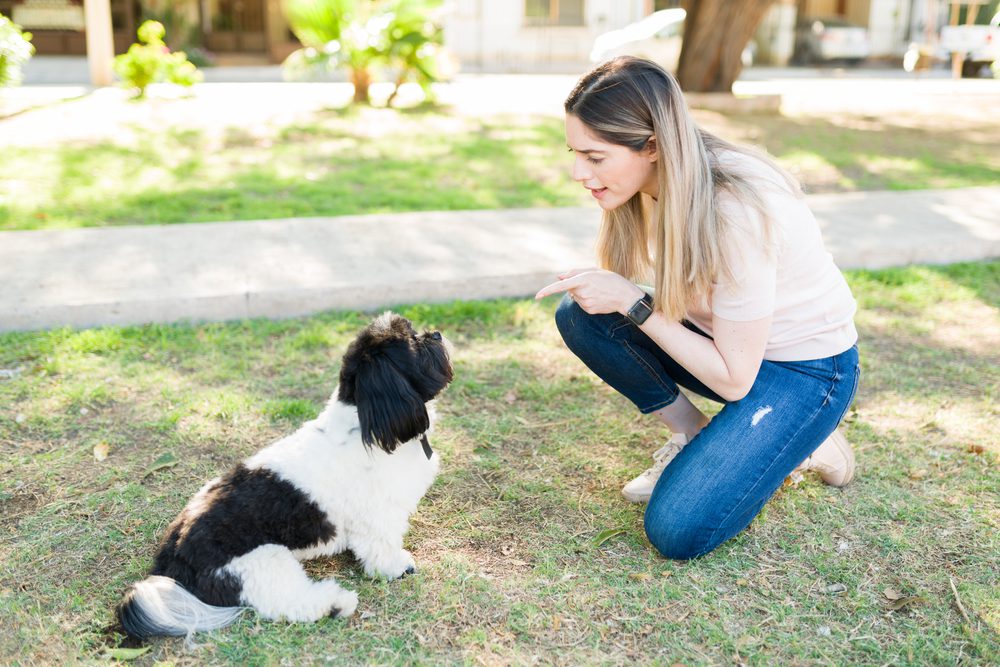
Consistent training is one of the most critical steps to prevent aggression in your Shih Tzu. Teaching them basic commands such as sit and stay will help them understand who is in charge regarding discipline or reprimands for bad behavior. Make sure you use positive instead of negative reinforcement when training your pup; this means praising good behavior rather than punishing bad behavior for creating a solid bond between you and your pet while teaching them how to behave around people and other animals.
3. Create Boundaries & Stick To Them
Creating boundaries around acceptable and unacceptable behaviors is essential for preventing aggression in Shih Tzus. Be clear about what behaviors are allowed, so your pup knows what is always expected of them. It will also help keep consistency throughout their life. Once these boundaries are established, it’s essential to stick with them so that your pup understands there are consequences for crossing these lines no matter where they are or who they’re interacting with given time.
4. Provide Plenty of Exercises
A tired Shih Tzu is a happy Shih Tzu. Regular walks, playtime, and mental stimulation (like puzzle toys) can help prevent boredom and frustration, leading to aggression. Exercise is not just good for their body but also their mind. It keeps them healthy and gives them something positive to focus on.
Conclusion
Understanding why your Shih Tzu is acting aggressively is critical to addressing the issue effectively and helping them become happier and healthier pets. In most cases, aggressive behavior can be traced back to genetics, environmental factors, or both! By working with an animal behavior specialist and setting boundaries with your pup, you can help them learn how to cope with their fears, so they no longer feel threatened by others around them. With patience and dedication, you can restore harmony within your home again!
FAQ’s
How Can I Tell Playful from Aggressive Behavior?
Sometimes, it’s tricky to tell if your Shih Tzu is just being playful or if they’re showing signs of aggression. Naughty behavior is usually bouncy, with a relaxed body and a wagging tail. Conversely, aggression comes with growls, stiff body posture, and maybe even bared teeth. If your dog’s play seems to get too rough, it’s time to step in and give them a break calmly.
Does Diet Influence My Shih Tzu’s Behavior?
What your Shih Tzu eats can indeed affect their mood and energy levels. Too much sugar can make kids hyper, and the wrong diet can make your dog feel out of sorts. A balanced diet suited to their age, size, and health needs can help keep them feeling their best. If you’re concerned about their diet, chatting with your vet can help you choose the right food for them.
How Important Is Exercise for Preventing Aggression?
Exercise is super important! Regular walks, playtime, and training sessions help your Shih Tzu burn off extra energy and stay mentally stimulated. They might start feeling bored or frustrated without enough exercise, leading to aggressive behaviors. Think of it as a fun way for both of you to stay healthy and happy.

